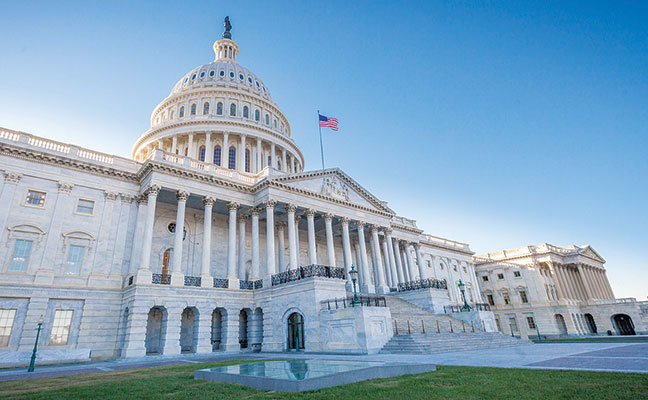
PHOTO: DKFIELDING/ISTOCK / GETTY IMAGES PLUS/GETTY IMAGES
On May 15, the $3 trillion coronavirus stimulus bill H.R. 6800, named The Health and Economic Recovery Omnibus Emergency Solutions (HEROES) Act, passed the U.S. House of Representatives. It is currently being discussed by the Senate, and if passed there, then to President Trump’s desk. It was introduced to the House on May 12.
“The vote fell along partisan lines, with only a few Republicans voting in favor of the bill,” the National Pest Management Association noted in an email bulletin to its members. “Democrats have described this bill as a ‘wish list’ and a way to shape the ongoing discussions over whether another COVID-19 aid package is needed. Republicans have resisted calls for additional spending, so Democrats created The HEROES Act as a starting point.”
In its weekly email update to its members, RISE (Responsible Industry for a Sound Environment) also noted the passage, noting that some Republicans “have raised objections to the bill’s $1 trillion in funding for state and local governments and its six-month extension of enhanced unemployment benefits. The nearly 2,000-page bill would provide additional funding for state and local governments, COVID-19 testing, nutrition assistance, and expanded unemployment benefits. It would also provide a new round of stimulus payments to individuals and create a ‘HEROES Fund’ to provide hazard pay to essential workers, among other items.”
Pulling straight from the Congress.gov bill summary, topics covered in the bill as written as of May 18 include:
- provides FY2020 emergency supplemental appropriations to federal agencies;
- provides payments and other assistance to state, local, tribal, and territorial governments;
- provides additional direct payments of up to $1,200 per individual;
- expands paid sick days, family and medical leave, unemployment compensation, nutrition and food assistance programs, housing assistance, and payments to farmers;
- modifies and expands the Paycheck Protection Program, which provides loans and grants to small businesses and nonprofit organizations;
- establishes a fund to award grants for employers to provide pandemic premium pay for essential workers;
- expands several tax credits and deductions;
- provides funding and establishes requirements for COVID-19 testing and contact tracing;
- eliminates cost-sharing for COVID-19 treatments;
- extends and expands the moratorium on certain evictions and foreclosures; and
- requires employers to develop and implement infectious disease exposure control plans.
The bill also modifies or expands a wide range of other programs and policies, including those regarding:
- Medicare and Medicaid,
- health insurance,
- broadband service,
- medical product supplies,
- immigration,
- student loans and financial aid,
- the federal workforce,
- prisons,
- veterans benefits,
- consumer protection requirements,
- the U.S. Postal Service,
- federal elections,
- aviation and railroad workers, and
- pension and retirement plans.
PMP will continue to watch the legislation as it progresses, and its potential impacts on the professional pest management industry.
Read more COVID-19 coverage here: MyPMP.net/COVID-19
Leave A Comment